Affiliate links on Android Authority may earn us a commission. Learn more.
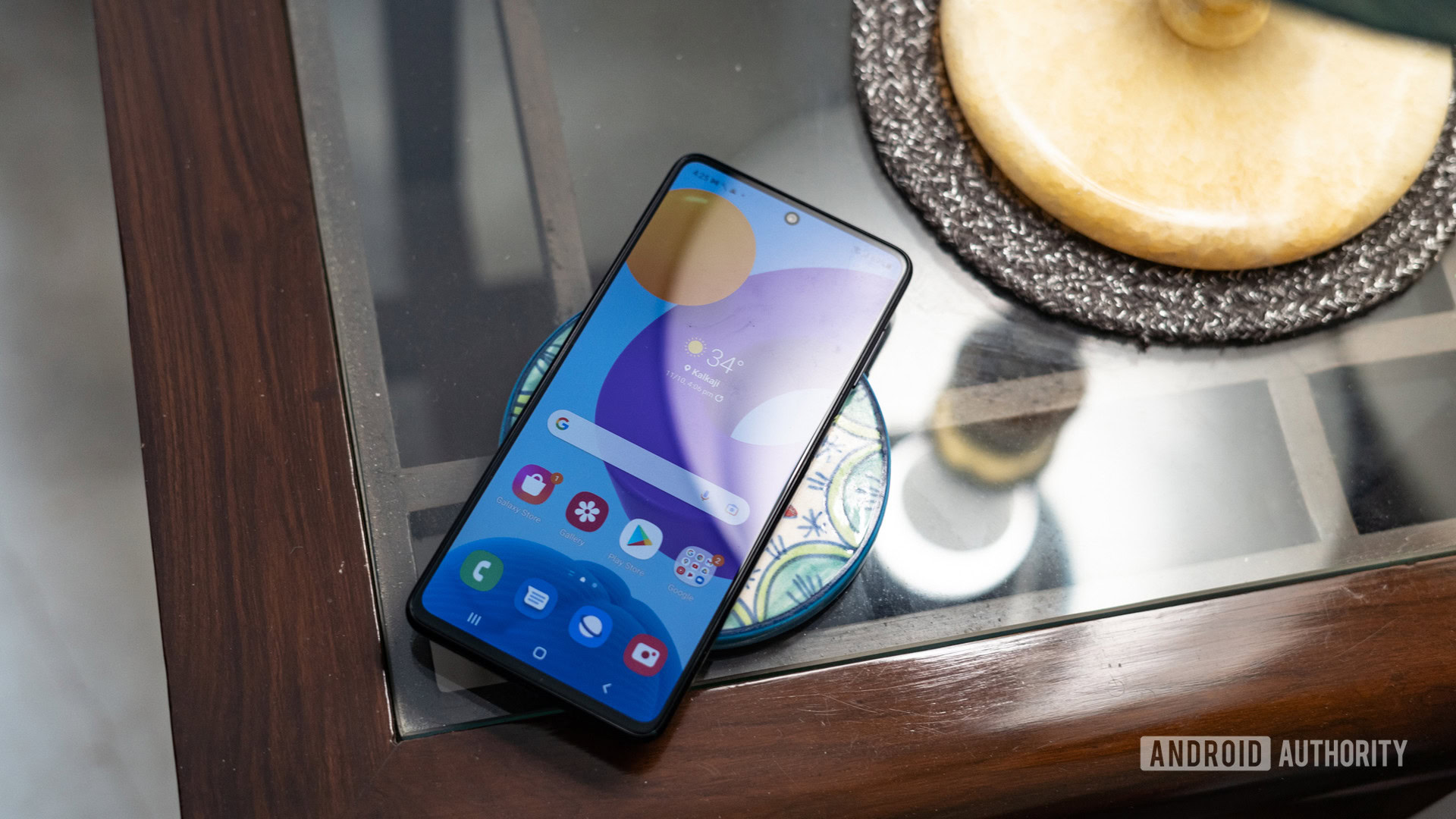
Samsung Galaxy M52 review: Bare essentials
Published onOctober 23, 2021
Samsung Galaxy M52
MSRP:
What we like
What we don't like
Our scores
Samsung Galaxy M52
Building a mid-range phone isn’t complicated, but staying relevant in the space is a whole different ball game. It takes more than specs to be competitive. Those specs need to be backed up by value, great design, and imaging capabilities. All of this might sound obvious, but finding that balance is key, and not every phone can achieve it. With the Galaxy M52, Samsung is making some concessions over its previous mid-ranger, the M51, while bolstering other aspects of the phone. In the Android Authority Samsung Galaxy M52 review, we see if the rejigged specs and Samsung’s focus on brand cachet can take on more densely packed spec sheets from the competition.
What you need to know about the Samsung Galaxy M52
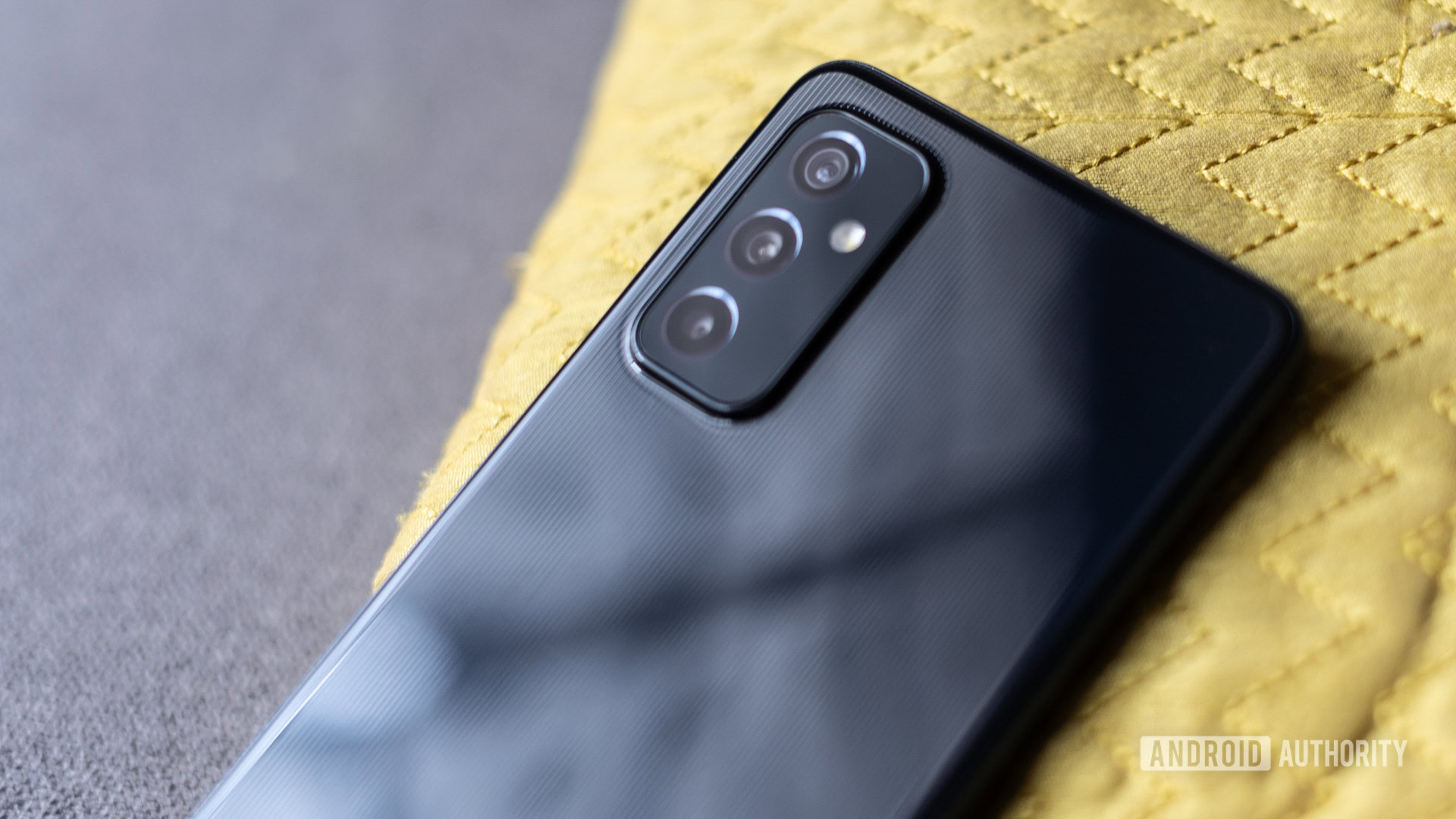
- Samsung Galaxy M52 (6GB / 128GB): Rs. 24,990
- Samsung Galaxy M52 (8GB / 128GB): Rs. 27,990
The Samsung Galaxy M52 follows up last year’s Galaxy M51 as a mid-range option for users who want more than the basics. The phone is available in two different configurations with the only difference being the amount of RAM. The Galaxy M52 serves as the highest-end device in Samsung’s M series portfolio with the Galaxy A52s serving as an upgrade option for users who want more.
Read more: The best Samsung phones
The Galaxy M52 is being fielded in three different colors, however, only the Icy Blue and Blazing Black variants are available in India. In Europe, the phone is available in a white option as well. For the moment, the phone is only available in Poland, though a wider release should follow soon, with pricing to be confirmed.
Is the Galaxy M52 well designed?
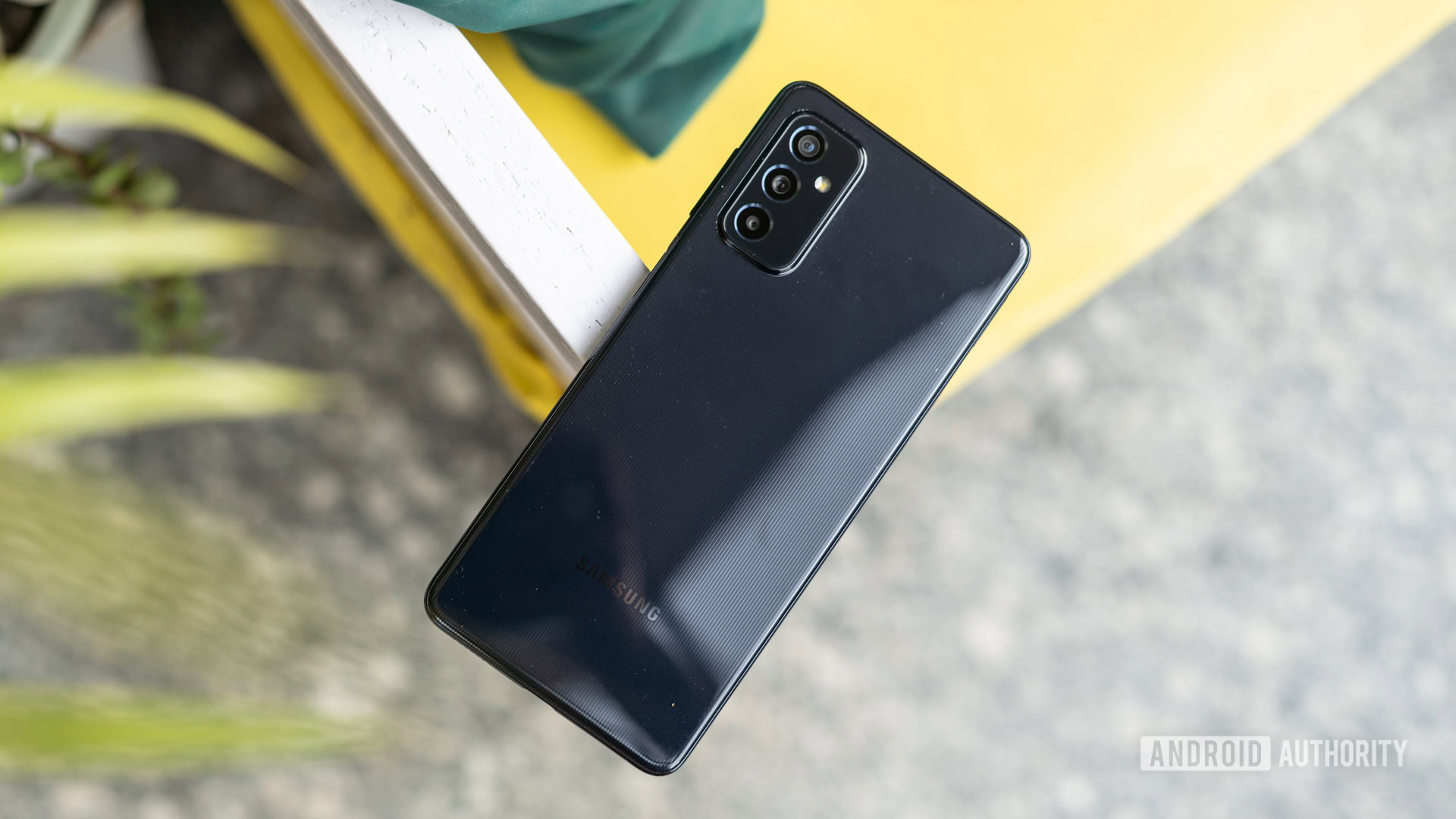
The only way to truly describe the Galaxy M52 is that, well, it’s a Samsung. It’s got the unmistakable glossy plastic back, with a design that takes cues from the Galaxy S21 series while making obvious downgrades in build quality. A pinstripe that runs all the way across the back panel adds some visual identity to an otherwise drab device.
The design is typical Samsung, but there are obvious downgrades in build quality.
It’s not cheap per se — the excellent weight distribution is noticeable — but you can certainly feel that the phone is built to a cost. Moreover, the back panel is extremely prone to fingerprints and scratches which takes away from the feel of the phone. That same feeling extends to the mid-frame as well. That said, the side-mounted fingerprint scanner is a useful addition and I found it to be very quick at unlocking the phone.
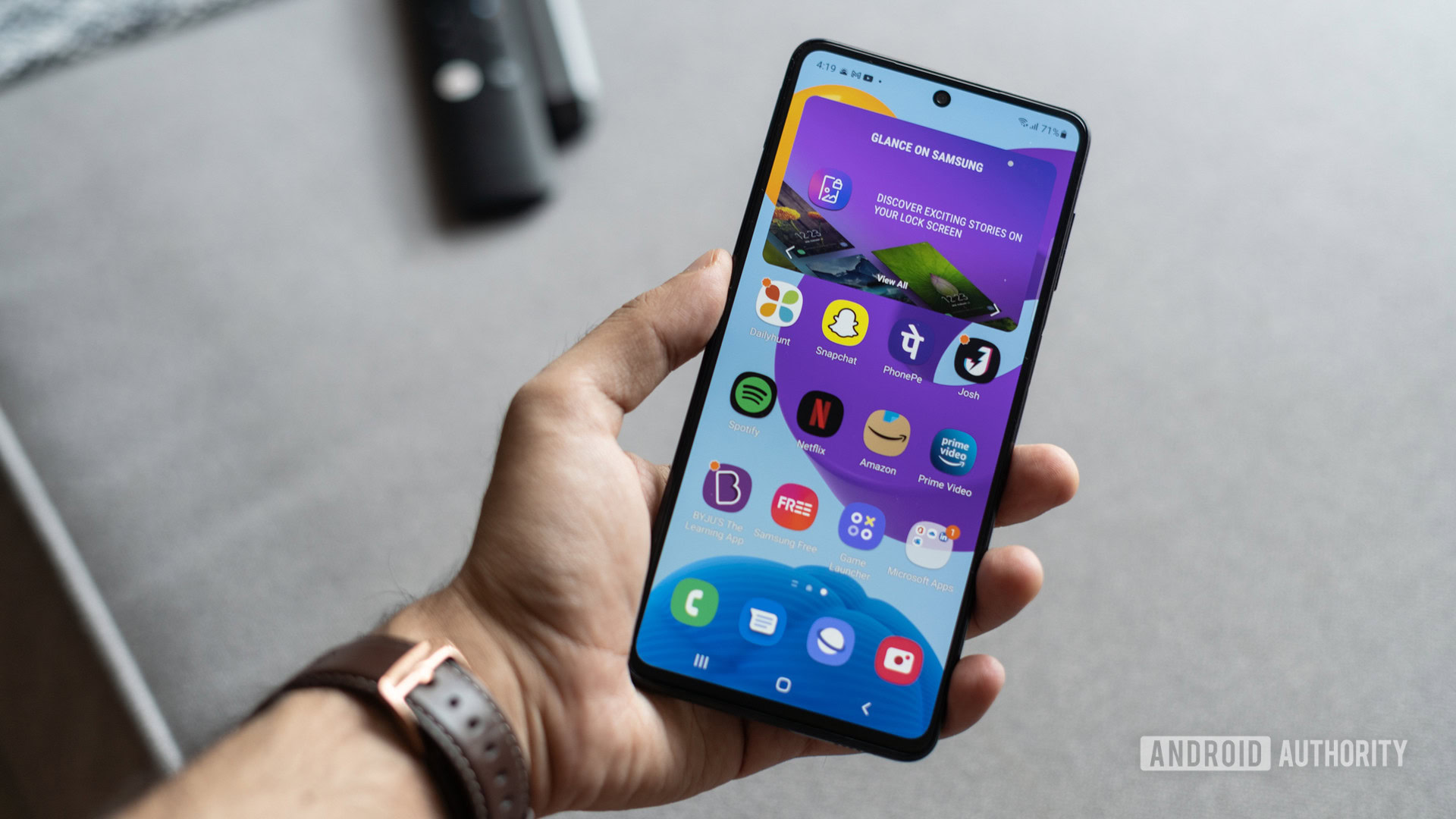
Samsung’s made a big deal of the display on the Galaxy M52 and that’s for good reason. The 6.7-inch Super AMOLED display is hands down one of the best in its segment, with top-notch color reproduction once set to the natural color profile, as well as fantastic brightness levels.
The Galaxy M52's display is hands down one of the best for the money.
Further, the 120Hz display truly elevates the user experience and adds an extra degree of smoothness to interface navigation. Unfortunately, Samsung isn’t offering an adaptive refresh rate here so you will be locked to either 120Hz or 60Hz depending on the profile you opt for. Like the Galaxy A52s that we reviewed recently, bezels are on the larger side but that’s understandable here given the market positioning. The phone comes equipped with Gorilla Glass 5 for protection, which is an older grade from Corning but is completely fair for the price.
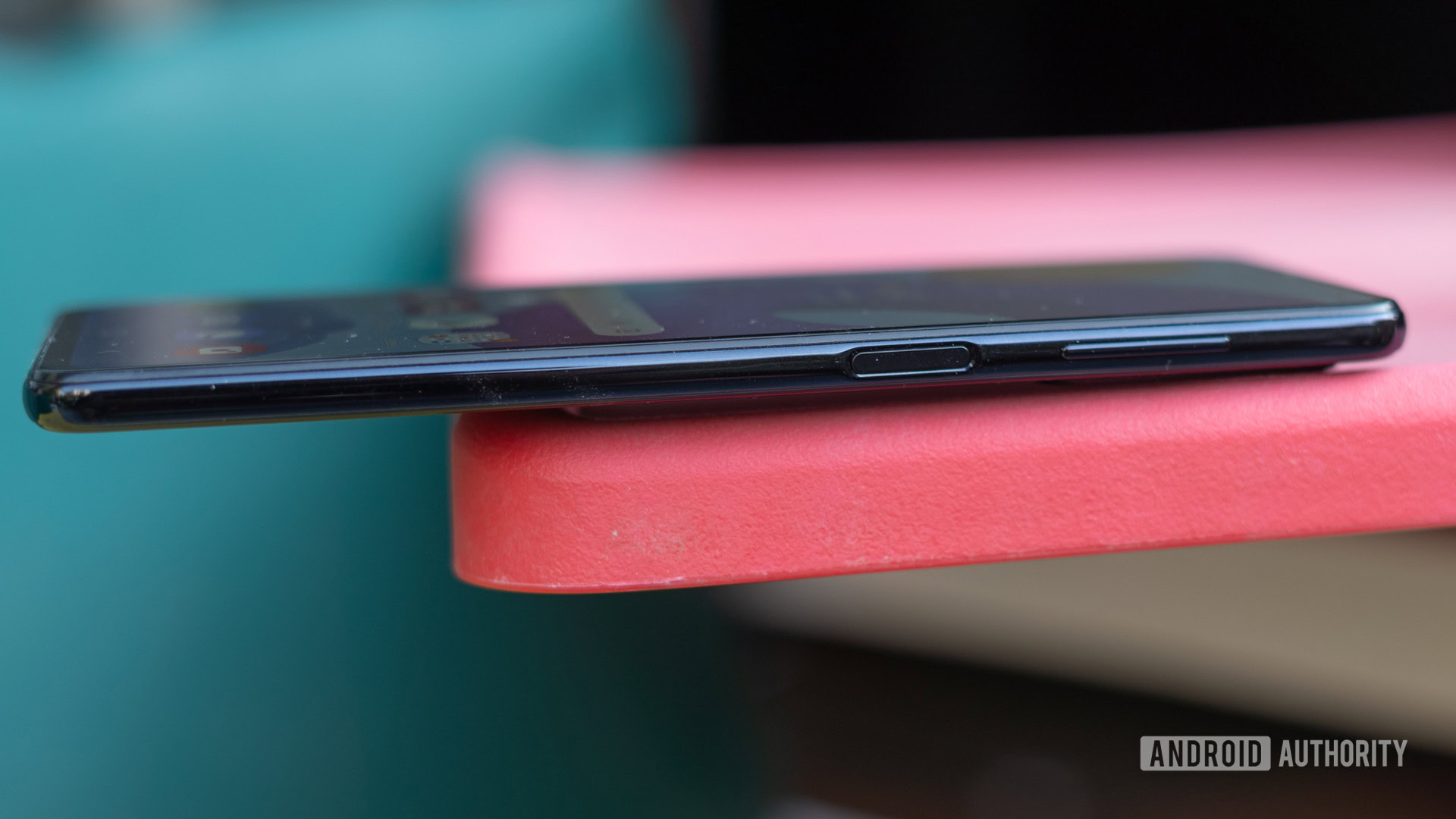
All in all, the Galaxy M52 is a fairly standard mid-ranger with an equal measure of inclusions and omissions. An excellent display, tight tolerance levels, and generally okay build quality are a definite positive, but the fingerprint-prone glossy plastics, lack of protection against the elements, and absence of stereo speakers ensure that the phone falls short of excellence.
Is the Samsung Galaxy M52 a powerful phone?
The Qualcomm Snapdragon 778G chipset is fast becoming the processor of choice in the mid-range segment outside the US and the Galaxy M52 is no exception. The octa-core chipset pairs four Cortex A78 cores with four Cortex A55 cores for a good amount of CPU grunt, and backs it up with 5G compatibility as well.
Read more: Snapdragon SoC guide — All of Qualcomm’s smartphone processors explained
Everyday use poses no problem for the phone. Samsung’s software optimization is all around great and normal tasks like popping in and out of the camera, web browsing, and social media use are predictably good. Gaming performance, however, greatly depends on the software in question. While shooters like Call of Duty: Mobile posed no issues, titles like Battle Grounds Mobile: India exhibited dropped frames and pop-in. Overall, the performance here should suffice for most casual users while gamers have several other options that might be better suited to their use case.
How long does the Galaxy M52’s battery last?
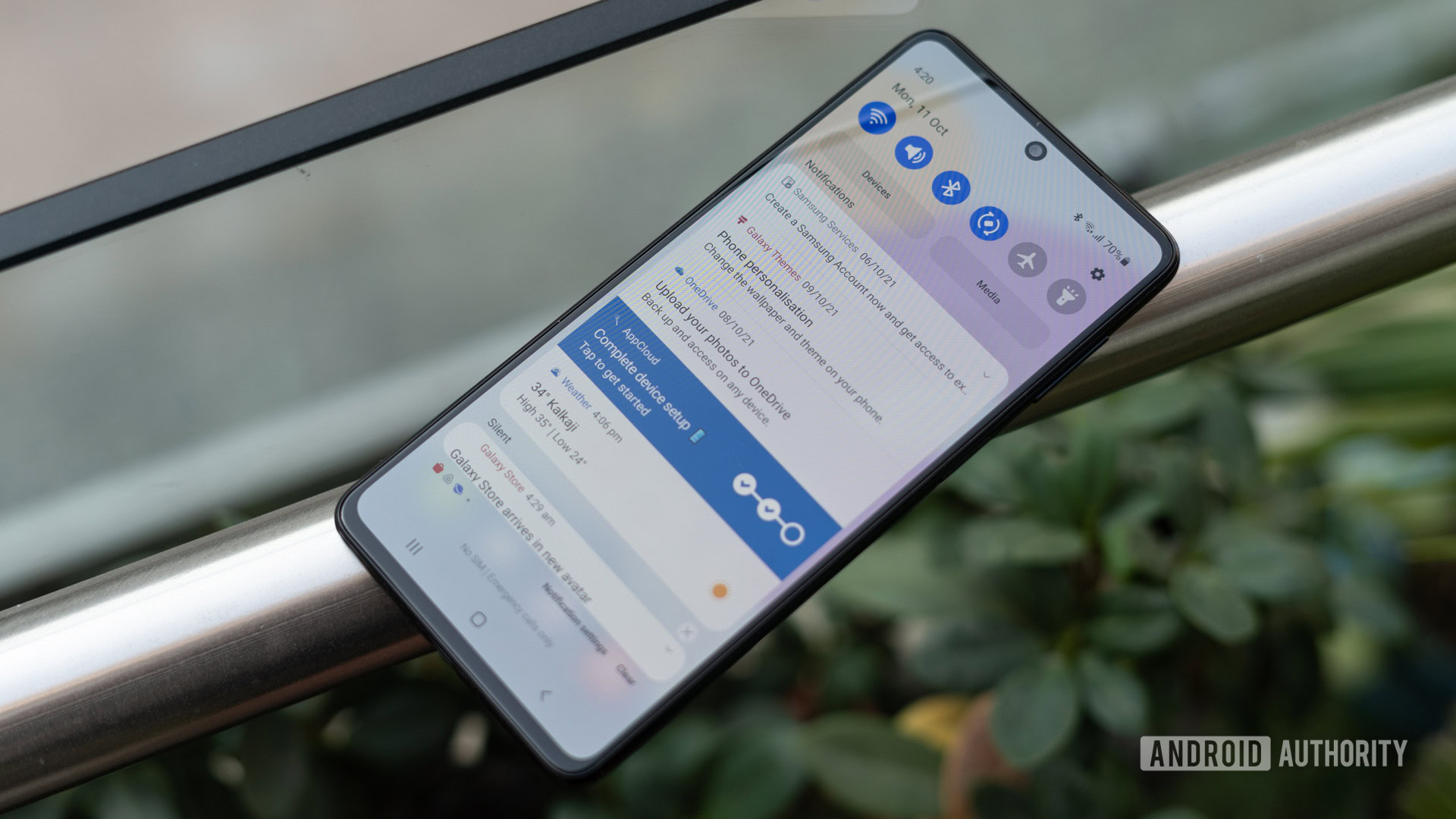
While the Samsung Galaxy M51 introduced a truly massive 7,000mAh battery, the M52 is making do with a 5,000mAh cell that is more in line with mid-range competitors. Despite that, the phone delivers almost a day and a half of use. My use case involves a lot of email, social media, Slack, and a few phone calls for good measure. On days when I pushed the cameras and tested out games, the phone still had enough juice to last me a full day. For users who want to eke out even more battery life, there’s always the option to switch to 60Hz, but most shouldn’t feel the need for it.
Samsung's insistance on a 15W charger despite support for 25W charging is irksome.
Despite the long battery life, Samsung’s reluctance to include a fast charger in the box continues to be irksome. While the Galaxy M52 supports 25W charging, which is still slow as snails compared to some competing devices from Chinese OEMs, most users will be relegated to the 15W speeds via the charger included in the box. Charging the phone takes just short of two hours, and I’d recommend most users to buy a compatible fast charger with the Power Delivery PPS standard for the phone. The phone doesn’t have wireless charging support either, but that’s a given in the segment.
How good are the Samsung Galaxy M52 cameras?
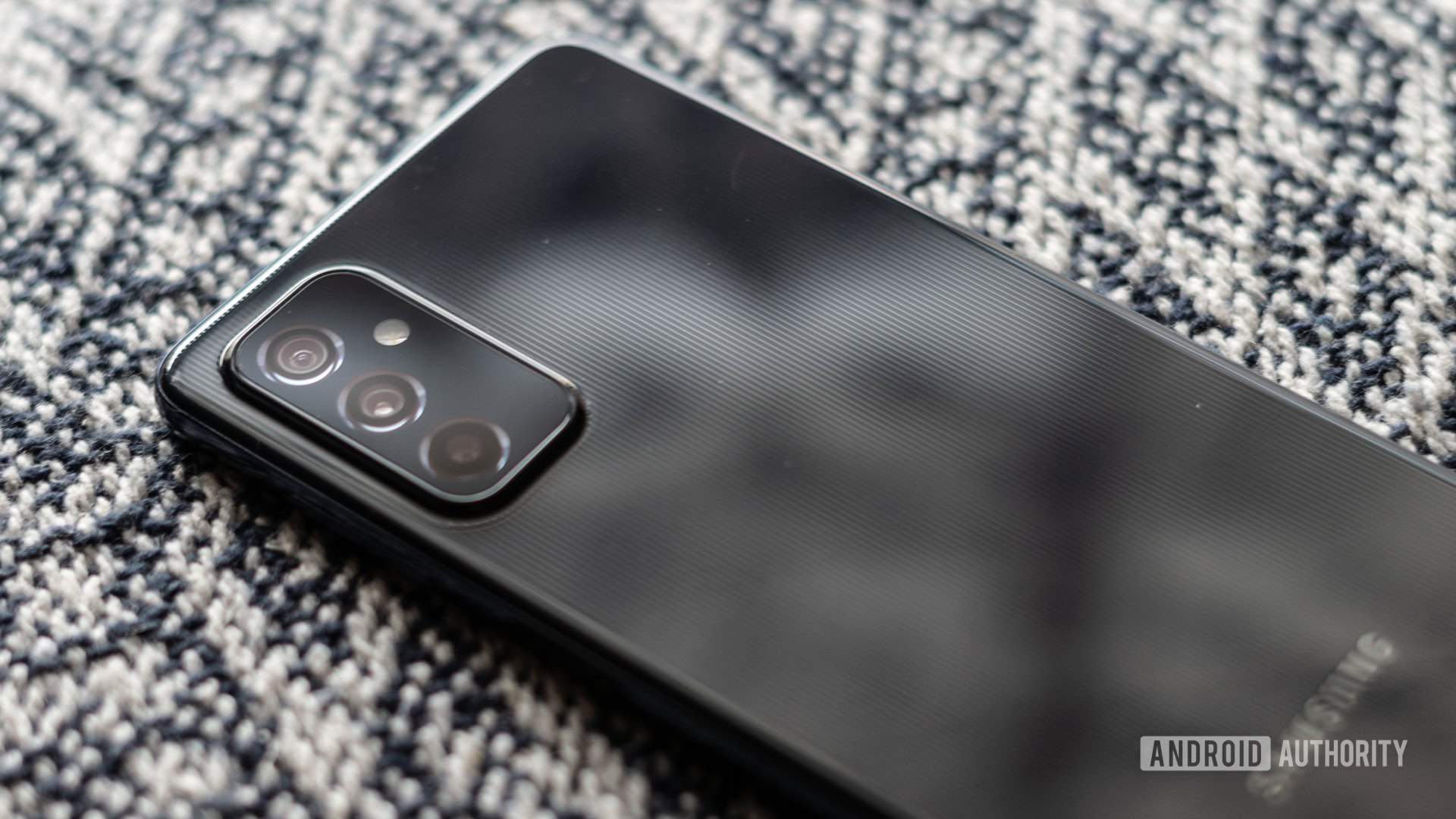
The Samsung Galaxy M52 is equipped with a standard trifecta of cameras including a 64MP primary shooter paired with a 12MP ultra-wide sensor, as well as a 5MP macro camera. It’s a very common configuration among mid-range smartphones, though Samsung could’ve tried to be a bit more competitive with a dedicated telephoto shooter.
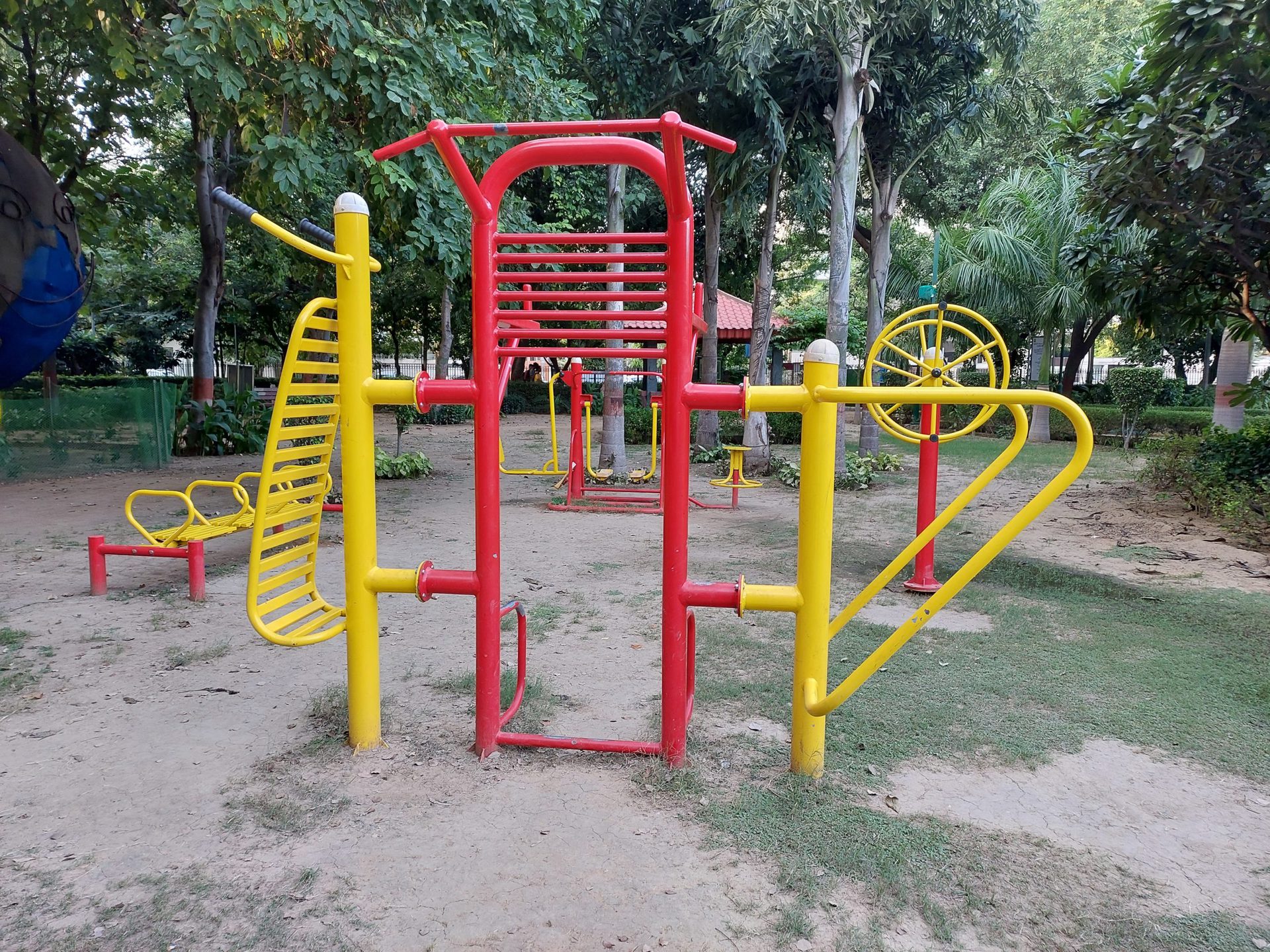
Image quality from the primary camera is passable. Samsung’s white balance metering on the Galaxy M52 appears to veer towards cooler settings which is very evident in all the images. The mid-afternoon photographs I took look like something that was shot late in the evening. In fact, the phone appears to be overcompensating for limited dynamic range by boosting exposure levels. Noise levels in well-lit situations are in control, though you can see some digital smearing in the foliage if you crop in close.
Samsung’s aggressive toning down of skies is also clear in wider shots. The blue levels appear unnatural with a very distinct HDR look. The ultra-wide camera in particular suffers from serious fringing, with loss of details around the edges. The standard shot doesn’t fare much better either. The dynamic range is limited and the object looks dark despite ample light.
Once again, the ultra-wide camera disappoints with its handling of edges and detail. The distortion correction here is objectively bad. Additionally, the camera handles direct light quite poorly, with blown-out highlights and flaring.
The M52 makes do with software zoom and cropping into the 64MP sensor for a 2x zoomed-in shot. In good lighting, results are decent, though the sharpening algorithms tend to go overboard with noticeable sharpening artifacts.

The dedicated 5MP macro mode on the Samsung Galaxy M52 is capable of getting close to the subject and has ample detail. However — you guessed it — the white balance levels are completely off and exposure levels are set too high.
Surprisingly, the camera fares quite well in dim light and indoor conditions. You’ll certainly notice noise in the shots but images are sharp and have a decent amount of detail despite the lacking dynamic range. Night mode boosts brightness levels further and you’ll get a significantly brighter image.
Over to the front-facing 32MP camera. By default, the camera crops into a wider frame to give you a close-up image. Color accuracy is good with excellent details. The white balance continues to err on the side of cooler shades but it’s not too bad, all things considered. The dynamic range isn’t particularly great, as you can notice with the burnt-out highlights in the wide-angle shot.
Similarly, portrait mode can be applied to both the standard and ultra-wide images. Edge detection is pretty good, with the phone drawing an accurate outline even around my curly head. The default bokeh separation can look a bit jarring, but you can adjust the level of bokeh after the fact for a more natural depth of field effect.
The Galaxy M52's cameras fall below the average of the competition.
Video recording on the Galaxy M52 goes up to 4K at 30fps. The quality isn’t particularly good, with limited dynamic range and boosted exposure levels. Additionally, the lack of image stabilization means you’ll need to hold the phone very still to get decent footage.
Put simply, the Galaxy M52 cameras are quite poor, even for the price. You can take a look at full resolution camera samples via this Google Drive link.
Anything else?
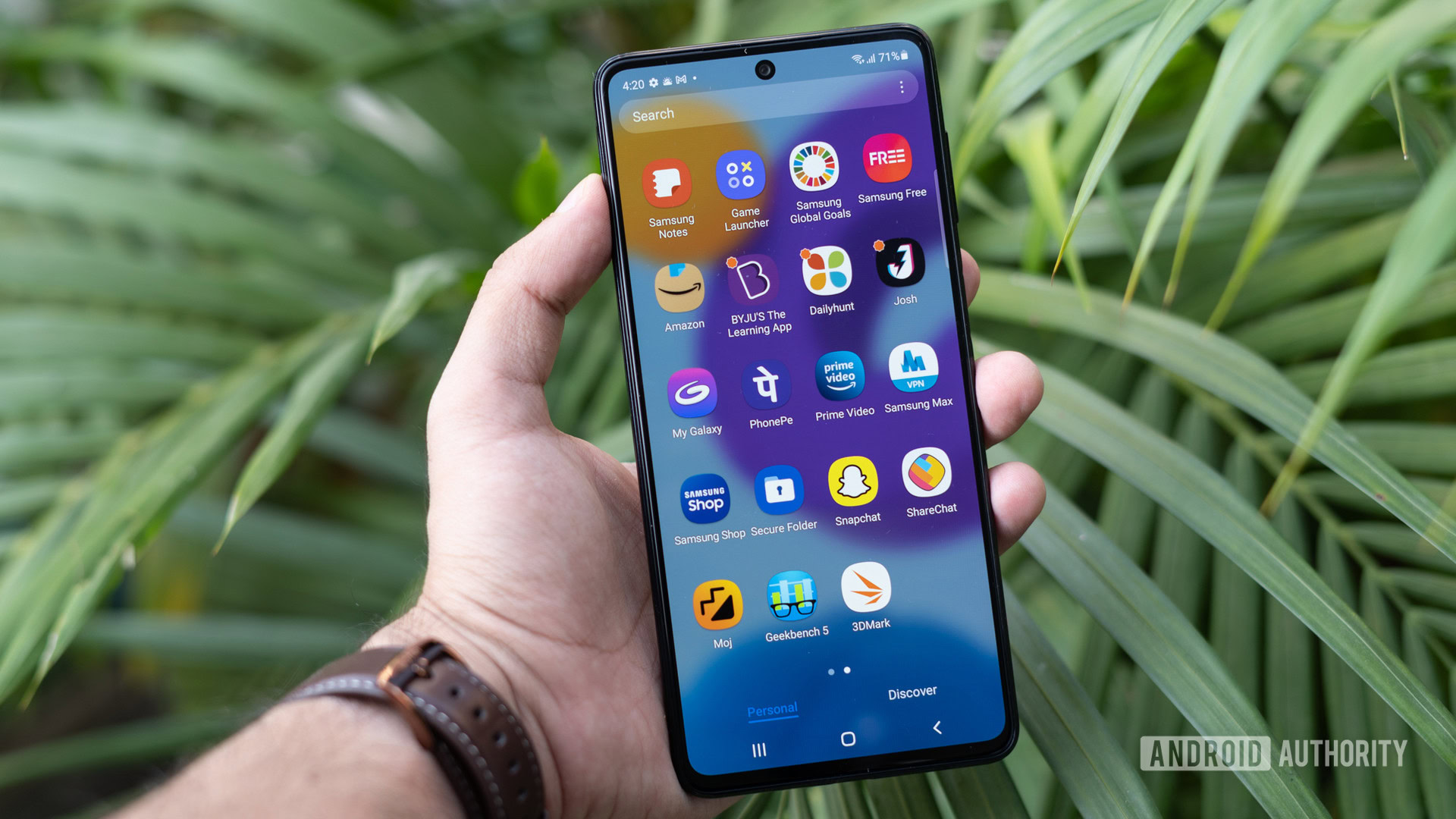
- Software: While the bloatware situation on the Galaxy M52 is nowhere near as bad as on other Samsung phones I’ve tested, I still counted about fifteen apps on the Indian unit I had on hand. You can delete some of them, but sadly not all of them. There’s also ample notification spam as well as a bold widget urging you to install more apps. In fact, this push towards installing additional software starts right from the setup process itself. It’s all a bit much and mars the best aspects of Samsung’s One UI skin.
- Audio: While I’ve already touched upon the speaker quality, the lack of stereo speakers is still a big miss here. Moreover, the phone doesn’t have a headphone jack either — a strange choice considering Samsung’s Galaxy A phones have one.
- 5G support: The Galaxy M52 supports a wide variety of 5G bands which should make it a good fit both in India and Europe. The lack of mmWave support — largely reserved for flagships — shouldn’t be an issue here since the phone isn’t on sale in the US.
- Wi-Fi 6: The phone also supports the Wi-Fi 6 standard making it a great futureproofed choice for home networking.
- MicroSD support: The Galaxy M52 has microSD support for memory expansion, albeit via a hybrid slot so you’ll lose Dual-SIM capabiitilies.
- Software updates: Samsung is promising two years of Android updates as well as four years of security patches for the Galaxy M52. While that doesn’t match the Galaxy S, Galaxy Z, or top Galaxy A promise of three years of platform upgrades, it’s an acceptable level of long-term support that bests much of the competition.
Samsung Galaxy M52 specs
| Samsung Galaxy M52 5G | |
|---|---|
Display | 6.7-inch Super AMOLED FHD+ (2,400 x 1,080) Infinity-O (display cutout) 407ppi 120Hz refresh rate |
Processor | Qualcomm Snapdragon 778G 5G 1 x 2.4GHz Kryo 670 Prime 3 x 2.2GHz Kryo 670 Gold 4 x 1.9GHz Kryo 670 Silver |
GPU | Adreno 642L |
RAM | 6 or 8GB |
Storage | 128GB microSD support (up to 1TB) |
Power | 5,000mAh battery 25W fast wired charging 15W charger in box No wireless charging |
Cameras | Rear: 1) 64MP main Optical image stabilization (OIS) Auto-focus (AF) 0.8µm, ƒ1.8 2) 12MP ultra-wide Fixed focus (FF) 1.12µm, ƒ2.2 3) 5MP macro 1.12µm, ƒ2.4, FF Front: 1) 32MP main 0.8µm, ƒ2.2, FF |
Audio | Mono speaker |
Connectivity | 5G Sub6 (FDD & TDD) Wi-Fi 802.11 a/b/g/n/ac/ax Bluetooth 5.0 NFC support |
Security | Side-mounted fingerprint sensor Face unlock (insecure) |
Software | Android 11 One UI 3.0 3 years of updates |
Dimensions and weight | 164.2 x 76.4 x 7.4mm 173g |
Colors | Icy Blue, Blazing Black, White |
Value and competition

The Samsung Galaxy M52 enters a very crowded space, especially in India where high specs and value are table stakes. With pricing starting at Rs. 24,990 (~$337), the phone has a lot of established competition. While the Galaxy M52 fares well on a performance front and the display delivers the goods, the lacking build quality and downright poor cameras fall below standard in a competitive price tier.
The POCO F3 GT (Rs. 26,999) with its MediaTek Dimensity 1200 chipset is an easy recommendation for mobile gamers seeking more power. The phone impresses not just with its performance, but also the unique magnetic triggers that will truly elevate your game. The regular POCO F3 (£329) is another performance-oriented alternative for buyers in Europe that combines a Snapdragon 870 chipset with decent imaging credentials.
For those who want a cleaner software experience, there’s the OnePlus Nord 2 (£399/Rs. 29,999) that, once again, has a powerful Dimensity 1200 chipset and better, albeit slightly inconsistent, cameras.
Meanwhile, Motorola is bringing a loaded spec sheet to the table with its near-stock software, 144Hz AMOLED display, and a 108MP camera on the Edge 20 (£429/Rs. 29,999).
Finally, there’s the ol’ faithful Google Pixel 4a ($350/Rs. 25,999) that is getting a bit long in the tooth on the specs front but makes up for it with a handy and compact build, long-term software support, and an exemplary camera.
Samsung Galaxy M52 review: The verdict
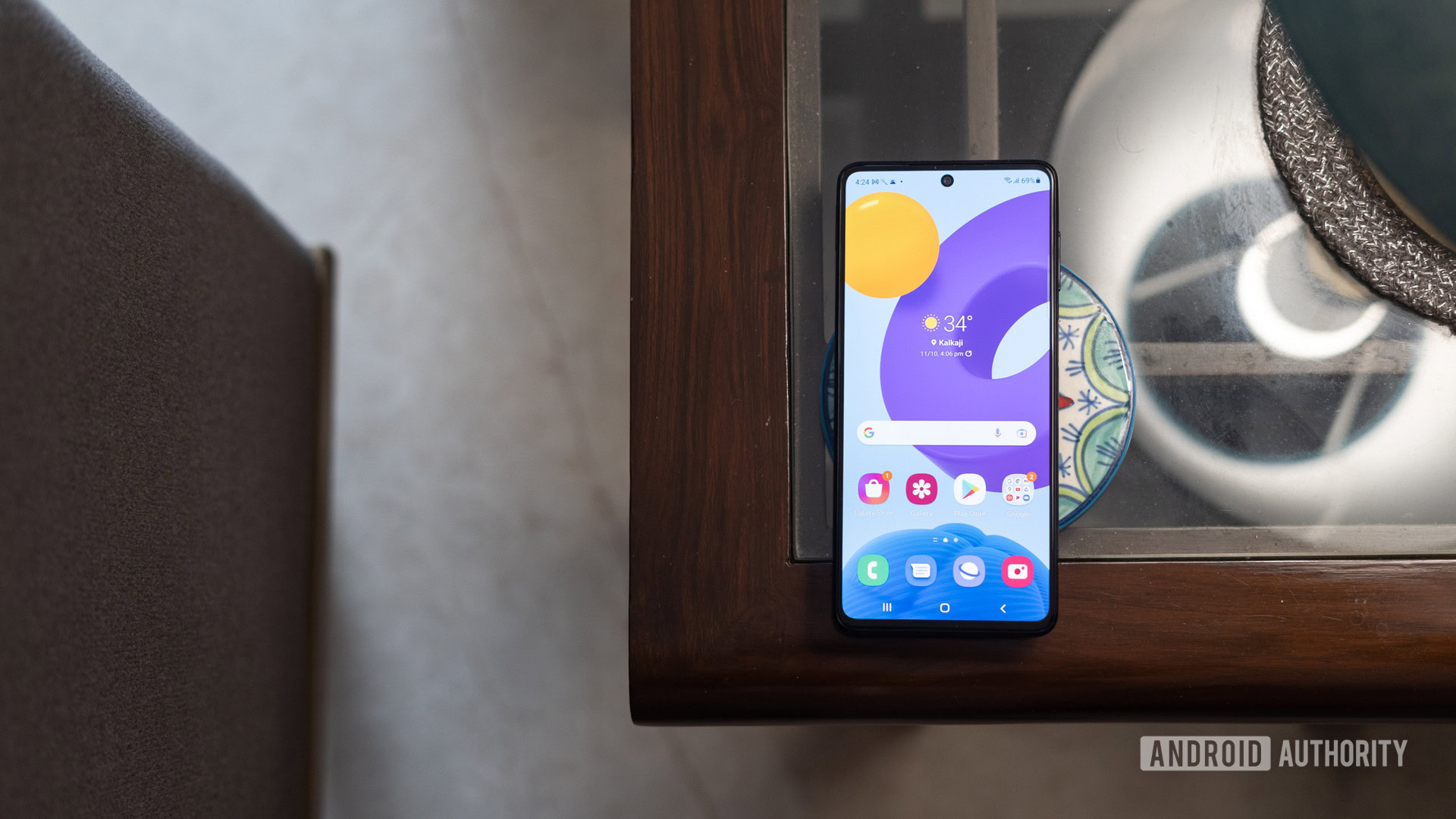
The Samsung Galaxy M52 isn’t the most exciting release from the South Korean giant, but the phone includes all the essentials you’d expect. In particular, the large and vibrant display sets the phone apart. Additionally, the Snapdragon 778G chipset is a solid performer, though Samsung’s battery optimizations seem to throttle performance in a few games.
The Galaxy M52 has more misses than hits and is far from the most competitive option.
One of the Samsung Galaxy M52’s sore spots comes with the poorly optimized cameras which fall behind those found on the best budget shooters, but my principal gripe with the phone is the build quality. Simply put, you expect better at this price. The cheap-feeling plastics just don’t live up to market expectations. However, that’s easily overcome with a case. What can’t be overcome is the bloatware situation, as well as missing features like an IP rating or stereo speakers. That’s a long string of misses in a category that’s already full of hits.